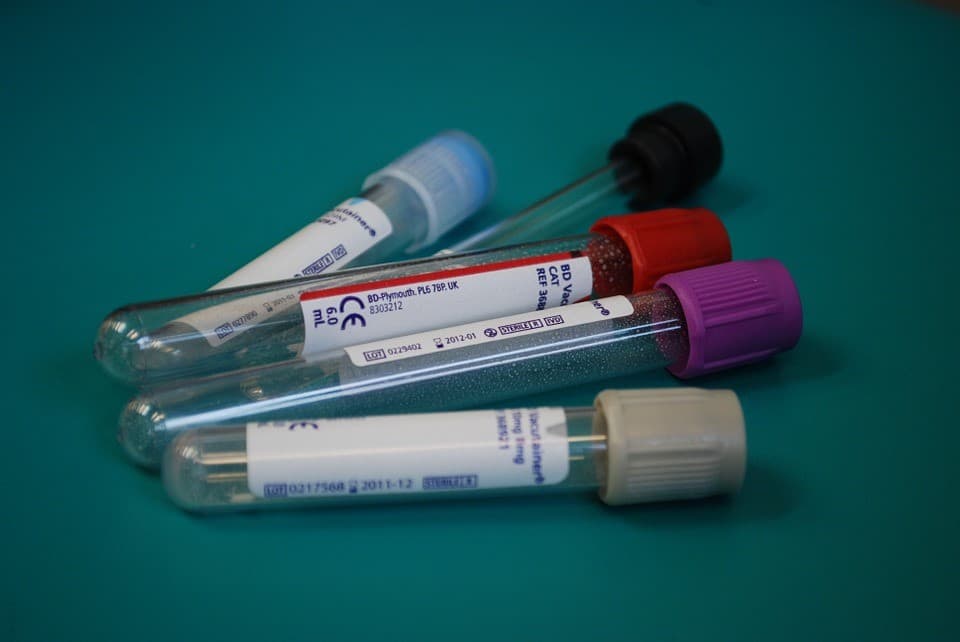
The question of any recently diagnosed prediabetes patient, “where do I begin” is actually quite common. I usually tell people it’s all about balance.
Finding a good balance is the key to anything in life. Keep living your life as you normally do and add in some healthy lifestyle changes. No time for exercise? Find a spot where you can make time. No time to cook healthy foods? Make a day where you make some healthy meals and freeze them.
Making time to balance and manage your health will pay off in the long run.
So, your doctor has told you that you really need to watch your blood sugar. Let’s take a look at a few good starting points to help you begin your new journey:
Talk to Your Doctor About the Cause
Before you even leave your doctor’s office, you need to ask the million-dollar question.
“What is causing my high blood sugars?”
You may think you are overeating on the sugary end of things, but that isn’t always the cause. It can make it worse, but the problem may lie deeper in your family or medical history. There are many underlying risk factors for prediabetes and researchers are still looking into the exact cause.
The article on Prediabetes: What You Need to Know will help you understand more about some of the risk factors for you and your doctor to look at. Honing in on your risk factors will help you understand better why you are having high blood sugars and help you come up with a treatment plan to reduce the effects of sugar on your body and increase your response to your own insulin.
Set Goals
Sit down with your doctor and come up with some realistic goals as part of your treatment plan. Realistic meaning give yourself a couple of months to reach your first goal. Then a couple of months to reach your second. Aim to be stable by the end of a certain time and make it easy to do. Here are some things to set goals for:
- Target Blood Sugar Range
- Target Weight
- Amount of Exercise
- Dietary Changes
- Lifestyle Modifications
Your doctor will give you the numbers for your weight and blood sugar to be in “target range.” Then you will be able to set your goals and balance them with your daily and weekly routines.
Ask to See a Dietician
Before you run out of your doctor’s office, make sure you ask to see a dietician if your unclear about how you should be eating. Not to worry, the dietician won’t make you go on a starvation diet. Quite the opposite in fact!
A dietician can tell you what foods to limit and what foods to eat more of. In fact, you will be exploring a whole new way of eating and maybe adding in foods you have never tried before. They will either teach you about “diabetic exchanges” or how to eat on the Glycemic Index scale. The good news is: Diabetics can eat carbs! If you know which carbs are good for you.
As said in the beginning, it’s all about balance. A dietician can teach you to eat a balanced diet to help stabilize and lower those blood sugars…Painlessly!
Just ask your doctor for a referral.
Add in Exercise
If your doctor gives the go ahead, start planning out your exercise program. It doesn’t have to be a whole lot at first. You can do things like”
- Walking after dinner
- Swimming
- Take a yoga class (or find a free yoga video on your TV subscription service)
- Do laps around the mall and window shop
- Climb stairs
- Even light gardening and housework are considered light exercise
Just make sure you get moving and try to balance your life with a little exercise each week. Start with short bursts and work your way up. Put it in your treatment plan and try to stick to it. Your body will thank you!
See About “Other” Testing
Does Aunt Mary have Type 2 diabetes? Did your grandfather have high cholesterol and blood pressure? Does your whole family have a larger waistline? Do you have a history of PCOS? Gestational diabetes? If you can answer “yes” to any of these questions, you need to review your family history with your doctor.
You may need “other” testing to get to the root of what is going on with your body. There are tests your doctor will order routinely at each physical like; glucose, cholesterol, blood pressure check, and urine. Some tests are not routine and may need to be ordered separately.
If you are only seeing a GP (General Practitioner) you may need to be referred to a specialist known as an, endocrinologist. They are trained to look at problems affecting the endocrine system. Most likely, they will be the ones to order further testing for certain conditions that can lead to prediabetes.
One more thing, ask to see an endocrinologist if you are having trouble lowering your blood sugar levels. This could be a sign that you need further testing.
Make It a Family Affair
Last but not least, involve your family. When you first hear that you have prediabetes you need to sit your family down and talk to them about it. Let them know that you will have to eat differently, exercise more, and make some lifestyle changes. Let them know it is for a very good reason, to try and avoid Type 2 diabetes.
Next, involve them in these changes. It can only benefit them in the long run. Change your eating habits as a family. Nothing is harder than having to cook separate meals. If your family learns good eating habits early on, you may protect them from the same issues later in life.
Go for walks as a family after dinner. Swim together as a family. Play some ball outside before dark. Not only does this help all of you get some exercise, it will help strengthen family bonds!
Prediabetes is an early warning sign that there is still time to make changes. When you get the diagnosis, your head may be swimming with too much information and very confusing. Using the tips above you can put a plan for change into place and find a good balance in your life!







